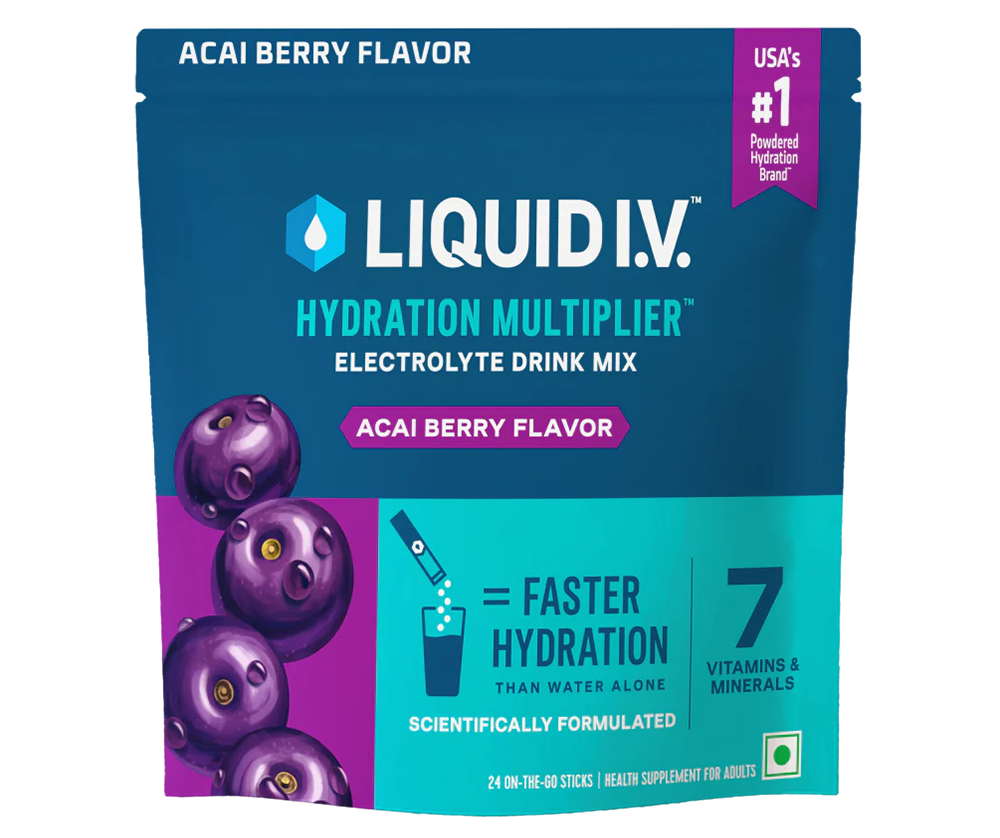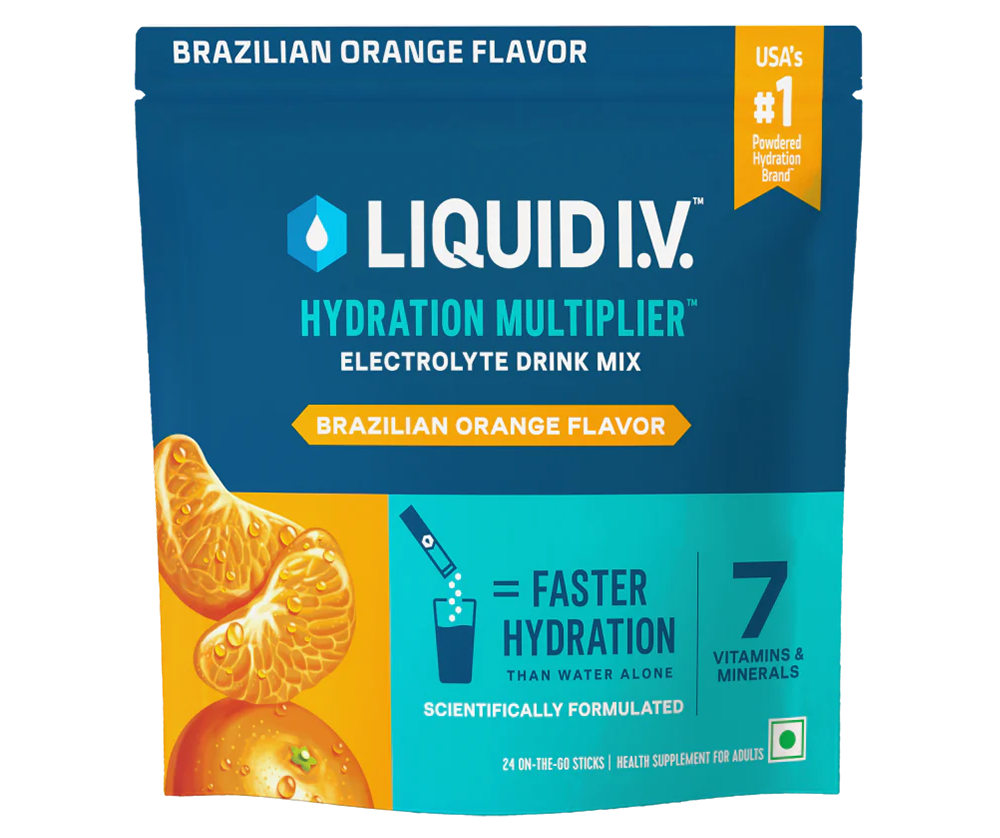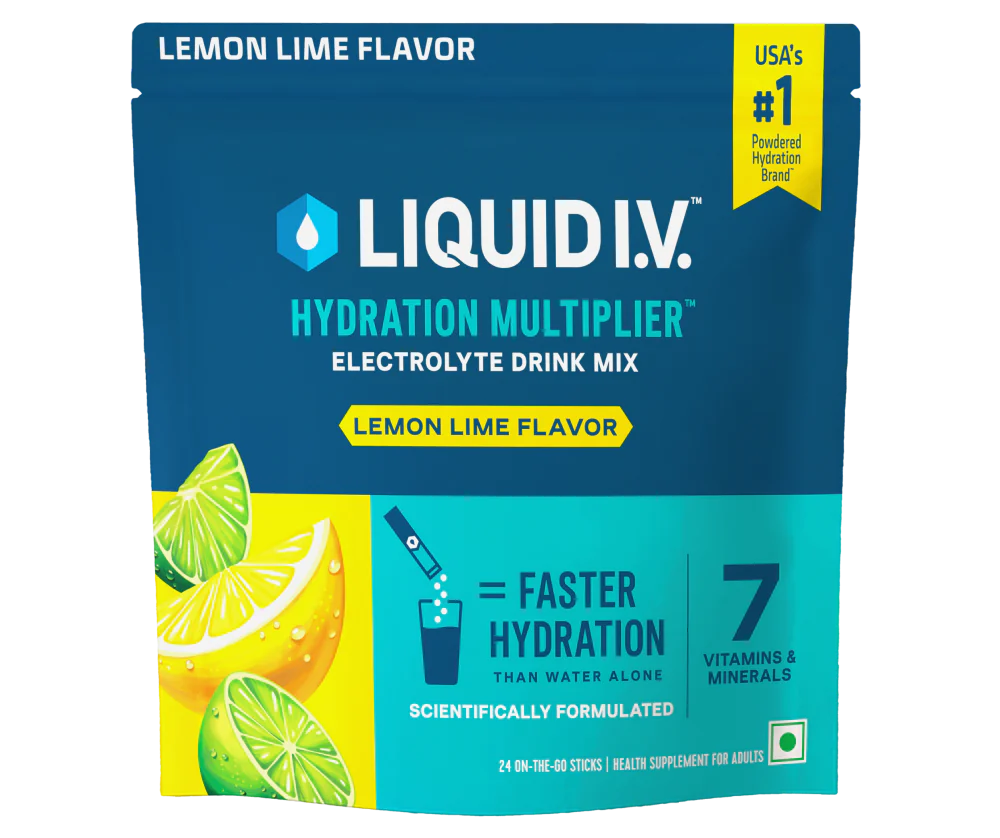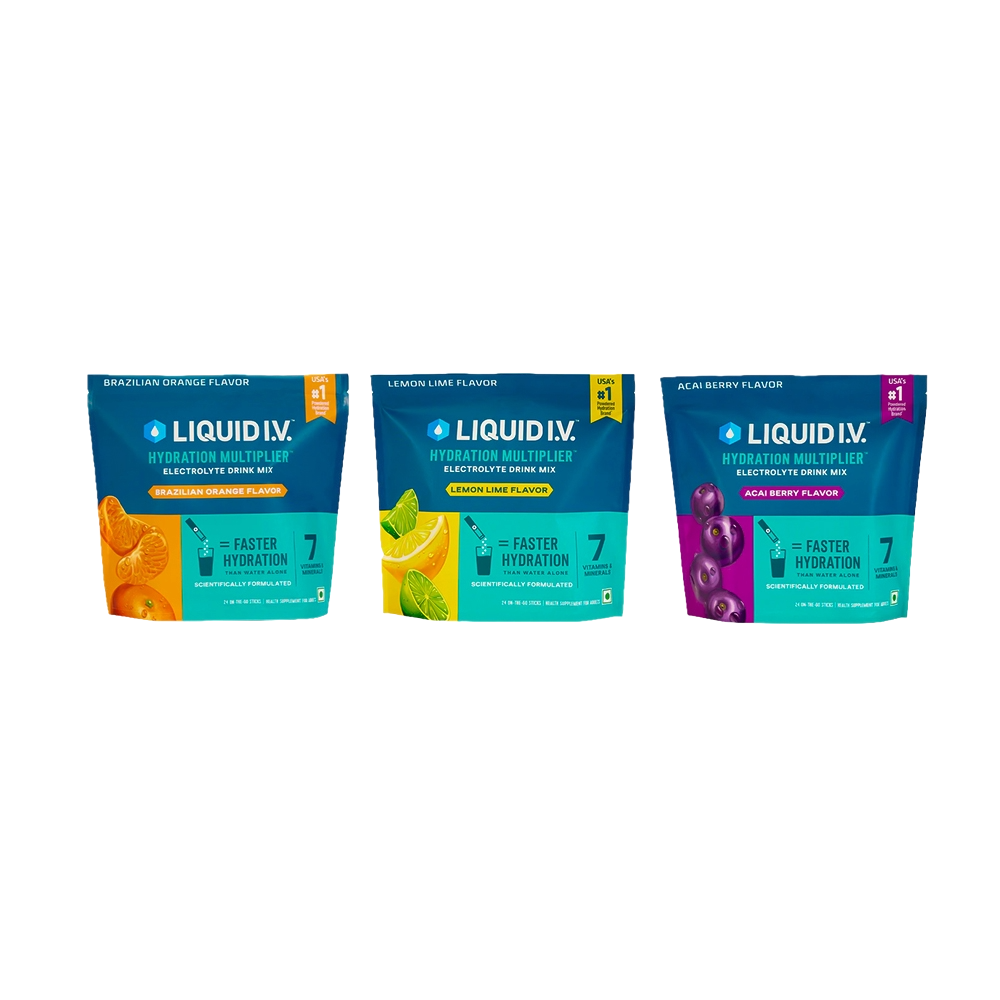# Simple Tips To Drink More Water
Ever hit that midday slump, feeling super cranky or dealing with a headache that just won't quit? The fix might be simpler than you think: water. Yep, that clear stuff we often overlook is actually a game-changer. However, saying that be aware that headaches can stem in from other complicated problems too- so take a judicious call of when to see the doctor.
Coming back to water, it’s not just basic; it's literally life. Water makes up a whopping 50% to 75% of our body weight, a testament to its fundamental importance. Unbelievable, right? Our brain is about 73% water, and our lungs are around 83%. (1) From moving nutrients around to keeping our body temp in check, staying hydrated is key. It affects everything from our fluid balance to how our organs function. This article is going to deep dive into why drinking adequate water is a total win, how much you really need, how to tell if you're hydrated, and the science behind why water is so awesome for your health. (2,3)
How Much Water Do You Need? Understanding Your Daily Hydration Needs
Determining the precise amount of water an individual needs daily isn't a straightforward calculation, as recommendations can vary based on several factors. While there's no magic number that applies to everyone, general guidelines provided by health authorities offer a helpful starting point. Experts recommend drinking about eight glasses or two litres of water including beverages each day. (3,4) These figures, are informative, but individual hydration needs are highly personalized and influenced by a multitude of factors. For instance, someone leading an active lifestyle or residing in a warmer climate, such as Mumbai or Delhi, will likely require more fluids than someone who is less active or lives in a cooler region. Other factors such as body size, metabolism, overall health conditions, and pregnancy or breastfeeding also play a significant role in determining individual hydration requirements. It's also important to remember that our daily fluid intake isn't solely dependent on drinking water; a significant portion comes from the water content in the foods we consume, particularly fruits and vegetables like watermelon and spinach, which are naturally high in water. (5)
How Do You Know If You're Drinking Enough Water? Decoding the Signals of Hydration
Knowing how much water to drink is cool but figuring out if you're hydrated is just as important. Thirst is your body's way of saying, "Hey, I need some fluids!" In fact, if you are waiting to feel thirsty, there’s a high chance that signs of dehydration hardening already. But relying only on thirst might not cut it, especially as we get older our body's thirst signals can get a bit misleading. Another way to check your hydration is by looking at the colour of your pee. If it's pale yellow, you're good. If it's darker yellow, you need to drink more water. How often you pee can also give you clues; peeing too much might mean something else is up, but regular peeing usually mostly means you're hydrated. Other signs of dehydration include feeling tired, headaches, dizziness, and a dry mouth. Please be aware all these signs can be indicative of more complicated problems too, so please visit your doctor if you feel high discomfort (6).
What Are the Health Benefits of Water? A Deep Dive into Water's Positive Impacts
Water is not just essential; it's literally the backbone of everything our body does. Its perks are massive and touch our health in so many ways. For example, water is key for keeping our body’s fluid balance. Even a little dehydration can make you feel tired and sluggish. Water is also crucial for digestion, helping break down food effectively. Our kidneys need water to work efficiently, filtering out waste from the blood Beyond these physical benefits, hydration has a big impact on our cognition and mood. Studies show that even mild dehydration can mess with your concentration, alertness, and mood. Water also helps regulate body temperature through sweating, transports nutrients and oxygen to cells, and gets rid of waste products. (5,7)
The sheer number of essential functions that rely on water shows just how non-negotiable it is for overall health. From the cellular level to the performance of major organ systems, water is indispensable. This widespread involvement highlights the critical need for consistent and adequate water intake as a cornerstone of a healthy lifestyle.
Is the Recommendation to Drink 8 Glasses of Water a Day Still Valid? Separating Myth from Fact
The advice to drink eight 8 glasses of water a day has been around forever and is super easy to remember. It's a decent general goal for many, but it's more of a guideline than a strict rule that fits everyone. (4) Individual hydration needs can vary a lot based on things like how active you are, the climate you live in, your overall health, and specific life stages like pregnancy or breastfeeding. Some people might need fewer, while others might need more to stay hydrated. The key takeaway is to pay attention to your body's cues, mainly thirst, and adjust your fluid intake accordingly. (3)
Are There Alternatives to Water for Staying Hydrated? Exploring Other Hydrating Options
While plain water is often considered the gold standard for hydration, there are other ways to supplement it. Other beverages, such as soups, milk, 100% fruit juice, and decaffeinated drinks, can also contribute to overall hydration. A big portion of our daily fluid intake comes from the water content in the foods we eat. Many fruits and vegetables, including watermelon, spinach, and cucumbers, have a very high water content and can contribute substantially to our hydration levels (8).
Liquid I.V. is a functional hydration multiplier that utilizes the power of electrolytes and glucose to enhance the body's absorption of water vs water alone. The mechanism behind this enhanced hydration involves the way our cells absorb water. The presence of sodium and glucose, helps to create an osmotic gradient that facilitates the transport of water across cell membranes more effectively. This can be particularly beneficial in situations where rapid rehydration is needed, such as during or after workout, when traveling to hot or humid climates. While electrolyte-enhanced drinks can be a helpful tool in specific circumstances, it's important to remember that they should be viewed as a supplement to, not a replacement for, regular water intake. Plain water should still be the primary source of hydration for most individuals. (9)
Conclusion: Quench Your Thirst, Enhance Your Health: The Power of Proper Hydration
Staying adequately hydrated is not merely about quenching thirst; it's a major key to good health that impacts nearly every part of our well-being. the benefits of drinking adequate water are undeniable. While the exact amount of water we need daily varies, paying attention to our body's signals and making conscious efforts to hydrate throughout the day are key. Whether you prefer plain water or incorporate other hydrating fluids and water-rich foods into your diet, prioritizing proper hydration is a simple yet powerful step towards a healthier and more vibrant life.
Frequently Asked Questions (FAQs)
-
What are the benefits of drinking enough water?
Drinking adequate water every day has a ton of health benefits. It can help you have optimal physical performance. Staying hydrated is super important for your brain too, helping you focus well. Water also helps with digestion. Adding adequate water to your daily routine can even help with weight management by making you feel full and boosting your metabolism. -
How to drink water correctly?
The key to effective hydration is to drink water consistently throughout the day rather than trying to consume large amounts all at once. Keeping a water bottle with you can serve as a visual reminder to sip regularly. It's particularly important to drink water before, during, and after any physical activity. -
What is the safe limit for drinking water?
For most of us, there isn't a strict upper limit to water intake, as our kidneys are efficient at regulating fluid balance. However, in rare cases, it is possible to drink too much water, leading to a condition called overhydration. This typically occurs when someone consumes an extremely large volume of water in a short period, often during intense endurance events without adequate electrolyte replacement. Symptoms of overhydration can include nausea, headaches, cramps, weakness, and confusion. If you have any concerns about your appropriate water intake, especially if you have underlying health conditions, it's always best to consult with your doctor or a healthcare professional for personalized advice.





